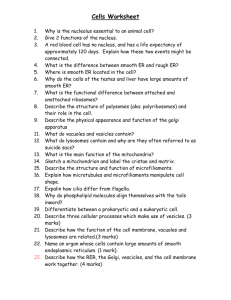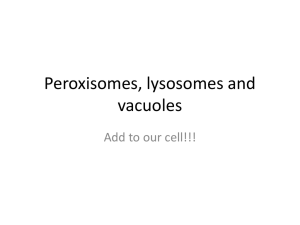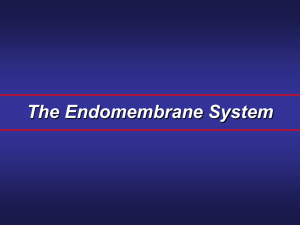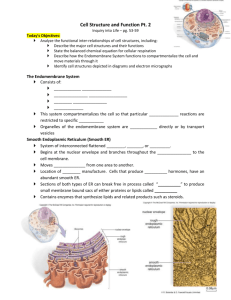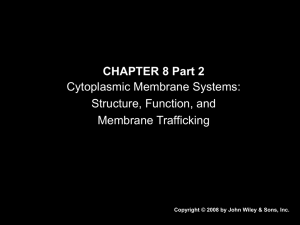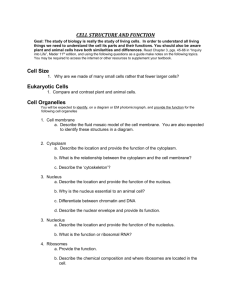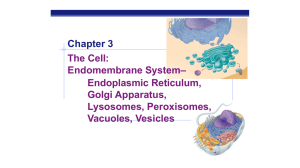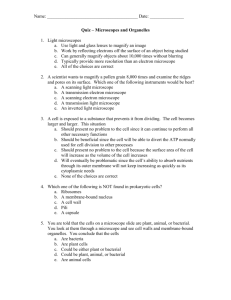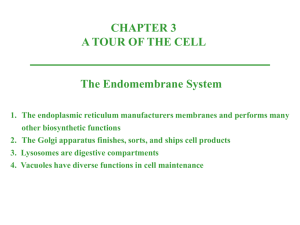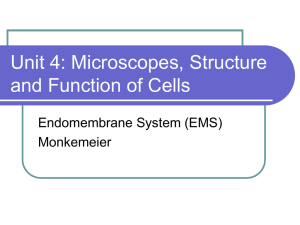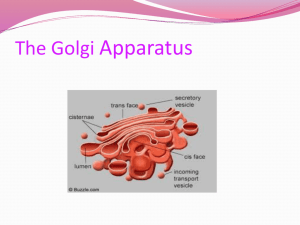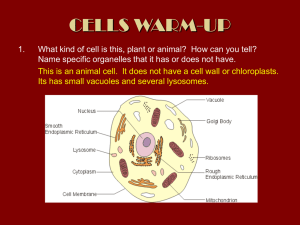Chap 4b The Endomembrane System
advertisement
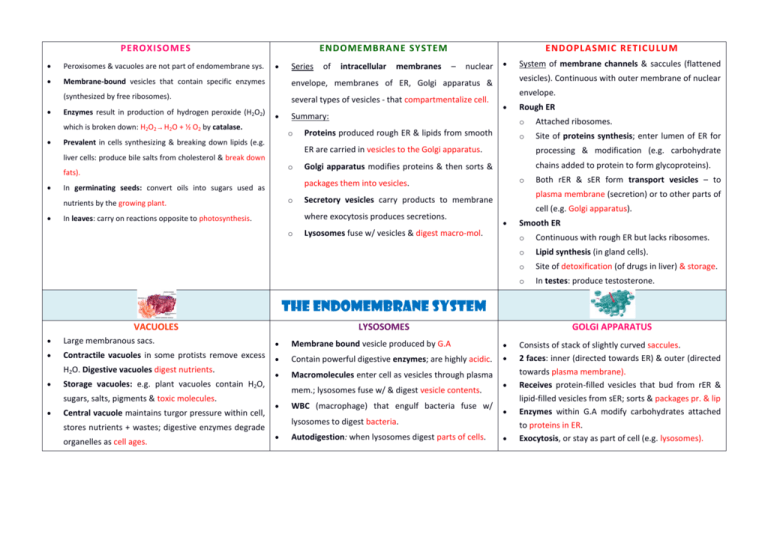
PEROXISOMES ENDOMEMBRANE SYSTEM ENDOPLASMIC RETICULU M Peroxisomes & vacuoles are not part of endomembrane sys. Membrane-bound vesicles that contain specific enzymes envelope, membranes of ER, Golgi apparatus & (synthesized by free ribosomes). several types of vesicles - that compartmentalize cell. Enzymes result in production of hydrogen peroxide (H2O2) which is broken down: H2O2 → H2O + ½ O2 by catalase. Series Prevalent in cells synthesizing & breaking down lipids (e.g. liver cells: produce bile salts from cholesterol & break down o membranes – nuclear o envelope. Proteins produced rough ER & lipids from smooth o Rough ER o Attached ribosomes. o Site of proteins synthesis; enter lumen of ER for ER are carried in vesicles to the Golgi apparatus. processing & modification (e.g. carbohydrate Golgi apparatus modifies proteins & then sorts & chains added to protein to form glycoproteins). o Both rER & sER form transport vesicles – to plasma membrane (secretion) or to other parts of Secretory vesicles carry products to membrane where exocytosis produces secretions. In leaves: carry on reactions opposite to photosynthesis. System of membrane channels & saccules (flattened vesicles). Continuous with outer membrane of nuclear packages them into vesicles. In germinating seeds: convert oils into sugars used as nutrients by the growing plant. intracellular Summary: o fats). of cell (e.g. Golgi apparatus). Lysosomes fuse w/ vesicles & digest macro-mol. Smooth ER o Continuous with rough ER but lacks ribosomes. o Lipid synthesis (in gland cells). o Site of detoxification (of drugs in liver) & storage. o In testes: produce testosterone. The Endomembrane System VACUOLES LYSOSOMES GOLGI APPARATUS Large membranous sacs. Membrane bound vesicle produced by G.A Contractile vacuoles in some protists remove excess Contain powerful digestive enzymes; are highly acidic. H2O. Digestive vacuoles digest nutrients. Macromolecules enter cell as vesicles through plasma Storage vacuoles: e.g. plant vacuoles contain H2O, sugars, salts, pigments & toxic molecules. Central vacuole maintains turgor pressure within cell, stores nutrients + wastes; digestive enzymes degrade organelles as cell ages. mem.; lysosomes fuse w/ & digest vesicle contents. WBC (macrophage) that engulf bacteria fuse w/ lysosomes to digest bacteria. Autodigestion: when lysosomes digest parts of cells. Consists of stack of slightly curved saccules. 2 faces: inner (directed towards ER) & outer (directed towards plasma membrane). Receives protein-filled vesicles that bud from rER & lipid-filled vesicles from sER; sorts & packages pr. & lip Enzymes within G.A modify carbohydrates attached to proteins in ER. Exocytosis, or stay as part of cell (e.g. lysosomes).
